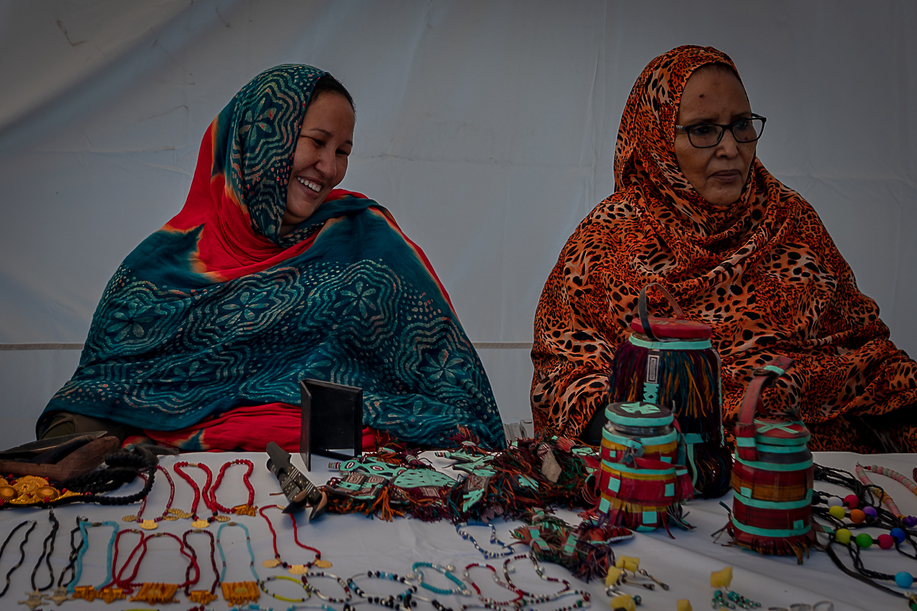
Touareg Women Fight War with Music
Photographer: Ezio Gianni Murzi
Exhibit Title: Touareg Women Fight War with Music
Location: Italy
In July 2019, a Touareg musical ensemble came to Rome, Italy, to remind us that there is no peace in Northern Mali. The ensemble was formed in the 1990’s war. Touareg were displaced from their ancestral places, and after returning they were forced back into exile once more. “We had to flee for survival”, says Fadimata walett Oumar, aka ‘Disco’, the leader of the musical group Tartit that was created in 1995 by a group of women in the refugee camp of Bassikounou, in Mauritania. " We had lost our herds, our way of life. Being displaced, we felt the need to speak about ourselves and our disappearing culture. Music was the only way available to us to let the world know.” Music ever accompanied Touareg life. “While men were fighting with their guns, women were fighting with their songs. Music became our way to regain cohesion and identity", says Disco. "Hand in hand let us foster peace so that there will be no more war in the world” , says the leitmotif of a Tartit song.
In July 2019, a Touareg musical ensemble came to Rome, Italy, to remind us that there is no peace in Northern Mali. The ensemble was formed at the time of the 1990’s war between the nomads Touareg and the sedentary peoples of northern Mali. Touareg were displaced from their ancestral places, and after returning they were forced back into exile once more. “Being Touareg we had to flee for survival”, says Fadimata walett Oumar, also known by her nickname ‘Disco’, the leader of the musical group called Tartit, “the Union”. She continues saying “the pioneering musical ensemble Tartit was created in 1995 by a group of women in the refugee camp of Bassikounou, in Mauritania. We had lost our herds, we had lost our way of life. There was no future. Bewildered and dispersed we felt the need to speak about ourselves and about our disappearing culture.Music was our way — the only one available to us — to let the world know what was happening.” In fact, music has always, from ancient times, accompanied Touareg life on festive occasion and in the long vigils listening to poetry in the desert campsite under the starry sky. “While men were fighting with their guns, women were fighting with their songs. Music became our way to regain cohesion and identity", says Disco. Soon the group’s music started to be played also outside the refugee camps. Since then, the Tartit ensemble has traveled across the world, performing in Africa, Europe, the USA, Latin America, New Caledonia and have recorded several CDs.
After a long make-up session — eyebrows and lips blackened, eyes heavily lined with antimony, cheekbones coloured in red ochre — the performers turn into icons of femininity, symbols of the matrilineal lineage of the Touareg people whose elegance and beauty are celebrated by poets. The artists’ bodies, highlighted by their conical headdress, their dyed indigo veil, their large starched dress, the amber and silver jewels, become majestic. Their Touareg identity is now fully revealed. “We, the women, are the pillar of Touareg society. We are like the main pole that keeps our tent standing in the desert.”
“Hand in hand let us foster peace so that there will be no more war in the world” says the leitmotif of a Tartit song.
eziogianni@gmail.com
00393497677943
Make Comment/View Comments